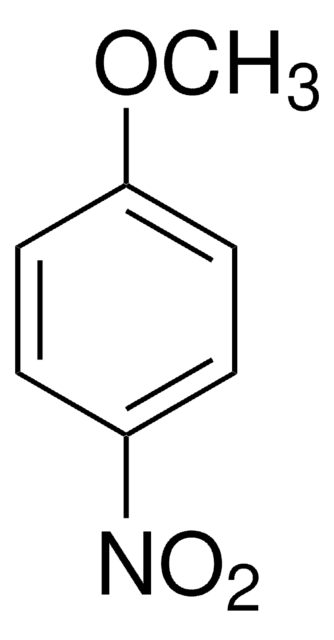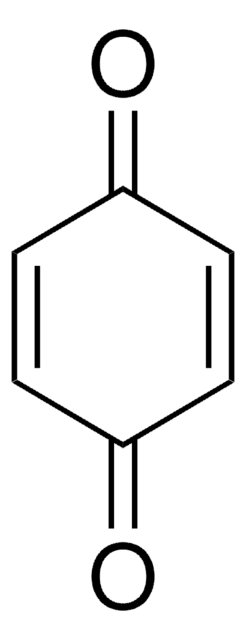241326
4-Nitrophenol
ReagentPlus®, ≥99%
Synonym(s):
p-Nitrophenol
About This Item
Recommended Products
vapor pressure
0.6 mmHg ( 120 °C)
product line
ReagentPlus®
assay
≥99%
form
powder, crystals or chunks
autoignition temp.
541 °F
bp
279 °C (lit.)
mp
110-115 °C (lit.)
solubility
alcohol: freely soluble(lit.)
chloroform: freely soluble(lit.)
cold water: moderately soluble(lit.)
diethyl ether: freely soluble(lit.)
functional group
nitro
SMILES string
O=N(C1=CC=C(O)C=C1)=O
InChI
1S/C6H5NO3/c8-6-3-1-5(2-4-6)7(9)10/h1-4,8H
InChI key
BTJIUGUIPKRLHP-UHFFFAOYSA-N
Gene Information
human ... UGT1A4(54657)
Looking for similar products? Visit Product Comparison Guide
General description
Application
Legal Information
recommended
signalword
Warning
hcodes
Hazard Classifications
Acute Tox. 4 Dermal - Acute Tox. 4 Inhalation - Acute Tox. 4 Oral - STOT RE 2 - STOT RE 2 Oral
target_organs
Kidney,Liver
Storage Class
6.1C - Combustible acute toxic Cat.3 / toxic compounds or compounds which causing chronic effects
wgk_germany
WGK 2
flash_point_f
336.2 °F
flash_point_c
169 °C
ppe
dust mask type N95 (US), Eyeshields, Faceshields, Gloves
Choose from one of the most recent versions:
Certificates of Analysis (COA)
Don't see the Right Version?
If you require a particular version, you can look up a specific certificate by the Lot or Batch number.
Already Own This Product?
Find documentation for the products that you have recently purchased in the Document Library.
Customers Also Viewed
Our team of scientists has experience in all areas of research including Life Science, Material Science, Chemical Synthesis, Chromatography, Analytical and many others.
Contact Technical Service









